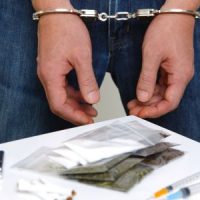The Three Ps Of Drug Possession

Virginia declared war on drugs in the 1960s, and that war continues today. However, the battle ground has shifted to drug possession. Almost 90 percent of the drug-related arrests in Loudoun County are for simple possession. Police officers make lots of possession arrests mostly because they believe these cases are easy to prove in court. But as outlined below, that’s usually not the case.
Because drug possession cases have so many moving parts, a Winchester criminal defense attorney is in a good position to successfully resolve such a case. If an attorney undermines the proof in just one area, the whole prosecution could fall apart like a house of cards. Prosecutors know the risks, which is why they are usually willing to negotiate favorable plea deals with defendants.
Produce the Substance in Court
Drugs and other physical evidence are only admissible in court if officers had a valid search warrant or a legal exception to the warrant requirement applied.
Most drug possession cases involve automobile searches. These events happen so quickly that officers don’t have time to obtain warrants. Therefore, an exception must usually apply, such as:
- Consent: Owners and apparent owners may voluntarily consent to property searches. Apparent owners are people like drivers who don’t legally own vehicles. Officers can’t keep asking occupants for permission until someone says “yes.” Furthermore, officers cannot coerce this permission. Saying something like “Let me search or else” is a coercive tactic.
- Plain View: If officers lawfully approach vehicles, they can seize contraband they see, including drugs, in plain view. In most cases, this exception only applies if officers had reasonable suspicion for the stop. In other words, officers must have an evidence-based hunch of criminal activity to detain motorists.
- Stop-and-Frisk: This controversial search warrant exception also has a reasonable suspicion requirement. If officers have reasonable suspicion and they pat down suspects for weapons, they may keep any contraband they see in plain view, or rather feel in plain touch.
Under the exclusionary rule, if officers broke the search warrant rule, a Winchester criminal defense lawyer can get the evidence thrown out of court.
Prove it was Illegal
Officers always claim that a substance “field tested” positive for drugs. However, this unscientific “field test” is usually not much more than a visual inspection.
Instead, to prove a substance is illegal, prosecutors must run chemical tests on those substances. Frequently, a subsequent scientific test contradicts the results officers claim they obtained from “field tests.” Furthermore, a Winchester criminal defense attorney can ask for a retest. These scientists often find different results from the ones police laboratory technicians claim they found.
Establish Possession
Possession doesn’t end with proximity. Prosecutors must also establish knowledge and control. Moreover, they must prove these two additional elements beyond any reasonable doubt.
A vehicle search and seizure is a good example. Assume Peter was driving a car and officers found drugs under the back passenger’s side seat, where Paul was sitting. It’s very difficult for prosecutors to connect Peter with those drugs from a knowledge and control standpoint, especially if Peter didn’t know Paul very well.
Reach Out to a Hard-Working Loudoun County Lawyer
There’s a big difference between an arrest and a conviction in criminal law. For a free consultation with an experienced criminal defense attorney in Winchester, contact Simms Showers, LLP, Attorneys at Law. We routinely handle matters throughout Northern Virginia.
